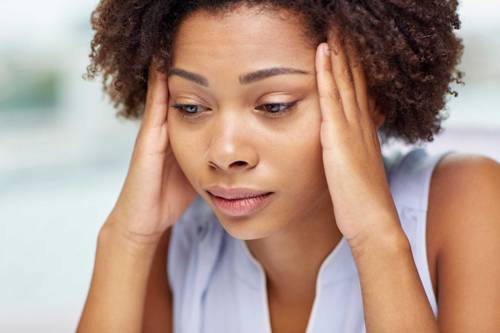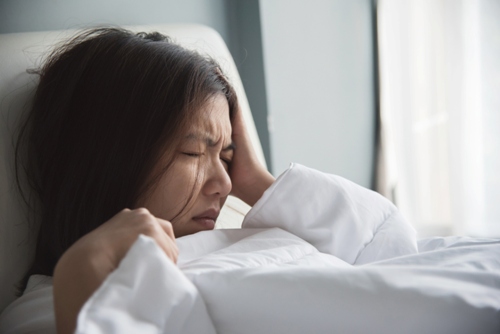Practically every person on earth experienced migraine symptoms at least once in his life.
Migraine is a disease that causes long-lasting, intense, sometimes completely unbearable headaches. Migraine can completely deprive a person of sleep and rest, destroy his career and personal life.
Now you will find out what causes headaches everyday what migraine remedies are offered by traditional and alternative medicine!
Buy high-quality supplements on Jiji at the lowest prices!

1. What is a migraine?
Migraine is a neurological disease. The frequency of migraine headache symptoms can vary from 1-2 times a year up to several times a month.
The main symptom of migraine attack is a headache, which can be very severe. Other typical symptoms include nausea and vomiting, as well as intolerance to light and sounds.

2. What causes migraines?
Basic migraine triggers:
- Neurological factors – stress, fatigue, intense emotional tension.
- Nutritional factors: alcohol (sparkling wines, champagne, cider). A number of products including nuts, chocolate, cheese, fish.
- Hormonal drugs. Often a migraine attack is accompanied by hormonal contraceptives.
- Disruption of sleep – and it does not matter if you have lack of sleep or its excess.
- External factors. Fluctuations in atmospheric pressure, a trip to another climate zone also can provoke migraine symptoms.
Find out our 10 steps to forget about migraine!

3. Migraine symptoms
- The main symptom of migraine is the headache of a pulsating nature, most often, pain occurs in one half of the head, but it can be bilateral. The frequency of occurrence of migraine attacks may be different as well as its intensity.
- In addition to pain in the head, the patient has a feeling of nausea, which can lead to vomiting.
- Photophobia and intolerance to loud sounds may also occur.
Symptoms of Stroke and Migraine | Cedars-Sinai
Stroke is the fifth-leading cause of death in the U.S. and a leading cause of disability, according to the American Stroke Association. To recognize symptoms, leading stroke experts recommend memorizing an easy-to-remember acronym: FAST!
4. Migraine treatment
4.1. Over-the-counter and prescription drugs for migraine:
- Non-steroidal anti-inflammatory drugs. Despite they are relatively cheap, accessible and safet, they can only help with migraine pains of mild to moderate intensity, and they are suitable not for all patients.
- Triptans. Unfortunately, they are not effective in all cases.
- Ergotamine. This natural chemical compound can instantly stop migraine pain. Ergotamine is recommended only for patients with infrequent attacks.
- Since many migraine patients experience nausea, antiemetics (antiemetics) are prescribed as an adjunct.
- Often, patients are forced to take antihypertensives, anticonvulsants, antidepressants.
4.2. Food supplements for migraine:
Nutritional supplements are widely used to treat migraine, being safe and well tolerated:
- Coenzyme Q10 can reduce the frequency, duration and intensity of migraine attacks.
- Riboflavin (vitamin B2) protects the nervous system, and can be destructive effects of migraine on the structure and function of the brain.
- Magnesium. Magnesium supplements reduce the intensity and frequency of migraine attacks.
- Melatonin is one of the most promising prophylactic agents for migraine, effective and safe.
- White burger is used to prevent migraine attacks.
4.3. Neuromodulating therapy for migraine
- Neuromodulating therapy,
- percutaneous stimulation of the supraorbital nerve (t-SNS).
Both methods are approved by the FDA for the prevention of migraine attacks.
4.4. Meditative techniques
The possibilities of meditation under stress, pain and neurological diseases are being actively studied today. A number of researchers argue that meditative techniques increase the pain threshold over time and make it easier to endure migraine attacks.
4.5. Acupuncture
Since ancient times, acupuncture is used for chronic pain. The Journal of the American Medical Association reported that acupuncture reduces the frequency of migraine attacks without an aura that is not accompanied by visual and cognitive impairment.
Treating Migraine
Wade Cooper, D.O., headache neurologist, explains common treatment options for migraine.
Install free updated Jiji app now – be the first to get the best Jiji deals from anywhere you are!






